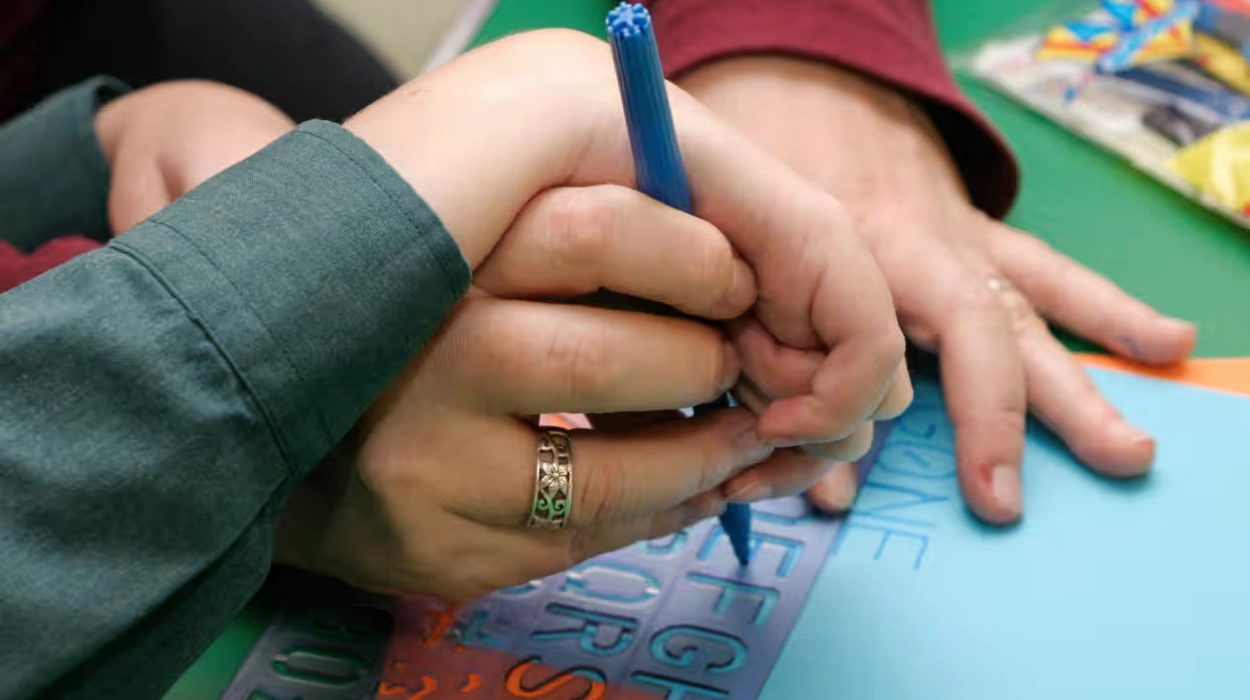UK (Parliament Politics Magazine) – UK may scrap EHCPs, threatening legal support for 576,000 children with special needs, raising concerns among campaigners and families.
As reported by The Guardian, ministers are considering reforms that could strip hundreds of thousands of children with special needs in England of their legal right to school support, sparking fears among advocates.
What would scrapping EHCPs mean for children with special needs?
Education, health, and care plans, which families have depended on for more than a decade to secure specialized assistance for conditions like autism spectrum and mental health, are the focus of the proposed reforms.
A departure from the current SEND framework would mark the most significant transformation in special educational needs and disabilities support since 2014, likely igniting strong resistance from parents, nonprofits, and legal advocates.
According to a 2024 National Audit Office report, the system is under financial pressure, with EHCPs rising 140% since 2015 and numerous councils reporting deficits over £100 million.
How do EHCPs ensure support for children with SEND in schools?
EHCPs define the necessary educational provisions for SEND children, including one-on-one assistance, language therapy, tailored teaching methods, or specialized equipment.
Schools have no legal obligation to address a child’s specific needs without an EHCP.
Many families rely on EHCPs as the only way to secure specialized support for their children, especially in mainstream state schools where most SEND pupils attend.
Some EHCPs specifically apply to special schools that provide high-needs support. Private schools have no legal obligation to deliver EHCPs, and local councils are not required to fund them, though some agreements exist.
What did Catherine McKinnell say about reforming SEND support?
Catherine McKinnell, the minister responsible for school standards, said the current SEND support system “is not meeting expectations” and confirmed that officials are developing a new SEND support framework.
When asked about the potential scrapping or limiting of EHCPs, she said,
“No decisions have been taken yet on how we deliver. The change we want to see is better support for children at the earliest stage possible. Clearly, the system we’ve inherited is not delivering that.”
She stated,
“Parents have a real battle to get support that should be ordinarily available in school.”
Pressed again, she said:
“I think parents would agree that if we had a well-functioning system, if we had that good early support, then you wouldn’t need a complex legal process to access education, adding, “Even when families secure an EHCP, it doesn’t necessarily deliver the education that’s been identified … We’re listening to parents. We’re working on a new system. It’s not fixed yet.”
Ms McKinnell revealed that the Elsec programme, which has aided 20,000 children to date, will continue for another year and be scaled up to help thousands more.
She highlighted Elsec as an example of providing earlier support without depending on external diagnoses or lengthy assessments.
She continued,
“That’s part of the toolkit teachers have. The more we can do that at the earliest stage, the more we can save families the challenge and stress of having to seek out support.”
What did Katie Ghose say about the future of disabled children’s education?
Katie Ghose, the chair of the Disabled Children’s Partnership, stated,
“Hundreds of thousands of children rely on these plans to go to school safely and learn. This would represent a fundamental break from four decades of political consensus that disabled children need legal guarantees to access education. Without that, the government risks sending more children out of school and into a system where their needs are simply not met.”
What did Tania Tirraoro say about the threat to disabled children’s rights?
Tania Tirraoro, the co-director of Special Needs Jungle, stated,
“We won’t accept the removal of disabled children’s rights without a fight. This isn’t about improving provision – it’s about saving money. If EHCPs are taken away from mainstream settings, early years and 16- to 25-year-olds outside special schools will lose protection too. That will push more children into special schools, alternative provision, or out of education entirely.”
She added,
“It seems like this Labour government has launched an entire assault on disabled people of all ages, including the Pip [personal independence payments] cuts and removing universal credit from under-22s, including disabled young people unable to work. Do they want to support disabled people to thrive or not?”
How many children in England now rely on EHCPs?
As of January 2024, over 576,000 children and young people in England had an education, health and care plan (EHCP). Official figures show that just half of new plans met the legal deadlines. Some families are still waiting more than a year for support.
Key points of an EHCP (Education, Health and Care Plan)
Purpose: Supports children/young people (0-25) with special educational needs (SEN) or disabilities.
Legal Basis: Replaced Statements of SEN (UK, since 2014 under the Children and Families Act).
Areas Covered:
- Education – Customised learning support.
- Health – Therapies, medical needs.
- Care – Social care services if needed.
Process:
- Request – Parents, schools, or young people (16+) can apply.
- Assessment – Local authority evaluates needs (6-week deadline).
- Draft Plan – Shared for feedback.
- Final Plan – Issued within 20 weeks total.
Content:
- Child’s needs, goals, and provision (school placement, therapies, equipment).
- Reviewed annually; updated as needed.
Rights:
- Parents/young people can appeal decisions (e.g., via the SEND Tribunal).
- Choice in school/college (including specialist provision).


